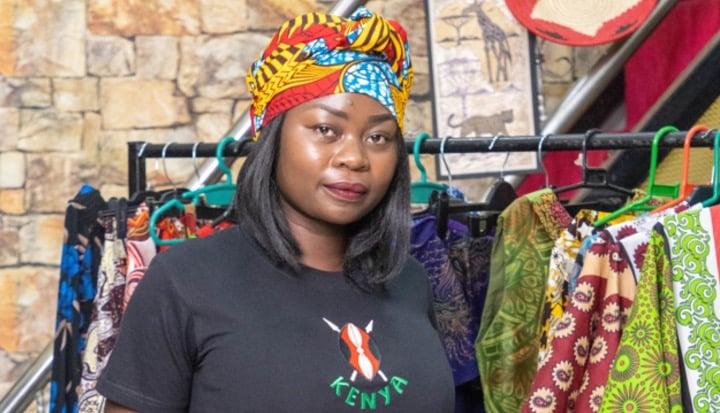A Call for Innovative Financing Solutions
Youth entrepreneurship in Sub-Saharan Africa represents an extraordinary opportunity to drive economic independence, societal transformation, and sustainable development. Yet, millions of young entrepreneurs remain constrained by a rigid financial landscape. These young minds, particularly women and other underserved groups, operate predominantly in the informal sector, with no access to the resources they need to expand their businesses. This calls for an urgent, innovative response from all sectors—government, finance, and development agencies—to reimagine financing for these informal businesses and empower them to reach new heights.
The Power of the Informal Sector
The informal sector is the heartbeat of many economies in the Global South, accounting for 85 per cent of employment in sub-Saharan Africa, according to the International Labour Organization (ILO). This vast, diverse sector includes street vendors, small traders, service providers, and cottage industries, offering livelihoods to those excluded from formal employment. However, its inherent informality presents significant barriers to accessing finance, inhibiting the growth potential of these businesses.
Women, who make up a significant portion of informal entrepreneurs, face particularly steep challenges. Despite women leading over a quarter of businesses in Africa, they encounter a $42 billion gender financing gap across business value chains, as reported by the African Development Bank. This disparity is not just a gender issue; it is a critical economic issue. Women reinvest more in their families and communities, amplifying the socio-economic impact of their entrepreneurial activities.
Transforming Challenges into Opportunities
The status quo cannot persist. The barriers that informal businesses face—limited collateral, risk perception by financial institutions, regulatory hurdles, and low financial literacy—must be dismantled. Traditional financial systems have failed to serve this vibrant sector. We need alternative financing models that cater specifically to the unique needs of informal businesses.
To address these challenges, Youth Business International (YBI), the only organisation dedicated to youth entrepreneurship support globally, and its member organisation Somo created a Revolving Loan Fund in Kenya, funded by Standard Chartered Foundation as part of Futuremakers by Standard Chartered. By providing low-interest loans and comprehensive financial literacy support, this initiative empowers young female entrepreneurs to sustain and grow their businesses. The Fund’s innovative credit scoring system, the Somo Scorecard, assesses creditworthiness using non-traditional data, breaking down barriers to access and fostering a more inclusive financial ecosystem.
Real Impact, Real Stories
Moureen Odera, founder of Modesh Bakers in Kisumu, Kenya, is one of the young entrepreneurs supported through the Revolving Loan Fund. She transformed her small bakery into a thriving business with a monthly turnover of KES 300,000. Her success did not stop with her own growth; she trained 80 women in baking skills, creating a ripple effect of empowerment and opportunity. This is not just business growth—it is community transformation.
Moureen’s story is a testament to what can be achieved when we provide young entrepreneurs with the right tools and support. Her experience highlights the immense potential that lies in informal businesses when they are given a fair chance to succeed.
A Call to Action
The time for incremental change has passed. We need bold, decisive action to unlock the potential of young entrepreneurs and informal businesses in sub-Saharan Africa. Governments, financial institutions, and development agencies must collaborate to:
- Innovate financing models: develop and implement alternative financing options like microloans, alternative credit scores, and guarantor arrangements, tailored to the realities of informal businesses.
- Enhance financial literacy: partner with local organisations to deliver accessible financial literacy programmes, empowering marginalised groups to navigate financial processes and manage their businesses effectively.
- Simplify regulations: streamline business registration processes and regulatory frameworks to make formalisation and access to finance more attainable for informal businesses.
- Address gender disparities: focus on closing the gender financing gap by specifically targeting support to female entrepreneurs and dismantling the stereotypes and barriers that hinder their progress.
Investing in youth entrepreneurship is not just an economic imperative; it is vital for building more equitable and inclusive societies. By fostering an environment where informal businesses can thrive, we can drive inclusive economic growth, create jobs, and accelerate progress towards the Sustainable Development Goals. The success of initiatives like YBI’s and Somo’s Revolving Loan Fund in Kenya shows the way forward. Now, it is up to all stakeholders to scale these solutions and unlock the full potential of the next generation of young entrepreneurs in sub-Saharan Africa.
Let us commit to making finance accessible, equitable, and transformative, so that every young entrepreneur has the chance to turn their vision into reality and create lasting change in their communities.
Read YBI’s and Somo’s policy paper “Alternative Financing for Informal Businesses to Propel Youth Entrepreneurship in Sub-Saharan Africa” for a deep dive into the important role and challenges of informal businesses in sub-Saharan Africa and actionable recommendations to enhance their access to finance.










